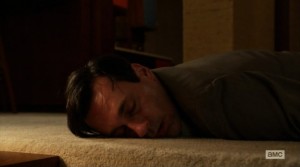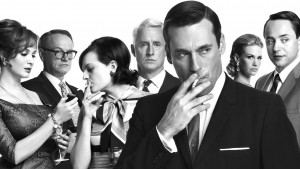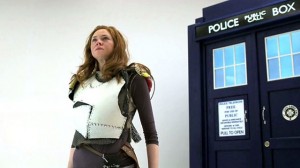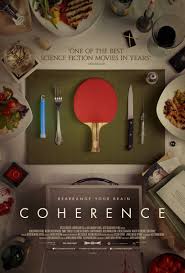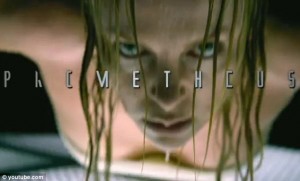Two Cents on Mad Men
I CANNOT HELP MYSELF.
I know that writing endless blog posts about a TV show is silly, really, but at risk of annoying the folks who cannot comprehend how you can spend so much energy contemplating a work of art, I have thoughts about Mad Men and the finale. In a nutshell: The whole show is about the fear of losing that creative spark.
Let’s start with the pilot episode: Don Draper, in a sweat because he has no ideas. He spend the whole episode in a sweat, worried he’s lost his gift, worried his brain will, finally, betray him and leave him with nothing to offer in the pitch session with Lucky Strike. Creative folks know that sweat: Every time we take on a new project, we worry that the Idea Machine in our brains will abandon us. Trust me. I’m still haunted by a brief period in college when I came up dry on story ideas and feared my best was behind me at the age of twenty. Stop laughing. This shit is serious.
Over the course of the whole show, we’ve been watching Don Draper fade. Season One is where his two most memorable and most-quoted pitches occur: Lucky Strike and Kodak. Since then, what truly great pitches has Don managed? None that I can think of. Well — maybe the Accutron Pitch in the first episode of Season Seven. That pitch kind of rocked — but, notably, Don wrote it, but he didn’t pitch it. And while it’s an arresting piece of writing, it’s not exactly a creative triumph that has people rushing from the room in tears. It’s just a solid, well-written piece of marketing. Don is a pro. Losing your creative spark doesn’t mean you lose the skills as well — he can still write, and write well. But he has no new ideas.
That’s not to say he wasn’t still creative. Or smart. Or cool. But we’ve been watching a Don Draper who is less and less creative as time goes by. In the season four episode “The Suitcase” Don’s big idea at the end is a simple steal from the iconic photo from the big fight. Also in season four, Don wins a Clio for his Glo-Coat commercial, but not only is it not an especially brilliant idea, it’s also largely stolen from Peggy. In the season six episode “The Crash,” Don, high on speed, claims he has a great idea, but can’t even articulate it.
Don retains his “cool” until his disastrous pitch to Hershey in Season 6. In the final season of the show, Don is relegated to creative grunt work, and even when he regains his executive authority, there are no good ideas. Don Draper goes from a creative genius in 1960 to a man still coasting on past (and long gone) creative glory in 1970.
Until rock bottom. Until Coke.
Once again, in the finale, Don is up against it. While he hasn’t been officially tasked with coming up with a pitch for Coke, we know he’s been assigned to the Coke pitch. We know Jim Hobart wants Don on Coke. And throughout the last few episodes, Don has been seeing Coke everywhere: At the meeting for Miller Beer he walks out of, on the road as he wanders the country. Many of the details at the retreat end up in his commercial pitch, and even rando Leonard’s speech about being unnoticed and wondering about love — the speech that moves Don to embrace him and break into tears — reminds Don of Coke (think about it – the whole bit about the dream of being in the refrigerator).
Don finally has a good idea again. No — a great idea, because no matter how you feel about advertising as a creative medium, the fact is that Hilltop Coke commercial is regarded as one of the most effective and most creative ads ever. After nearly ten years of stagnation, Don manages one last flash of genius. And that’s why Don will be okay. It has nothing to do with his familial obligations or failures, or his money, or his libido. Don will be okay because he’s found his creativity again.
Or, yanno, it was a TV show and they made it up as they went along. Shut up.

